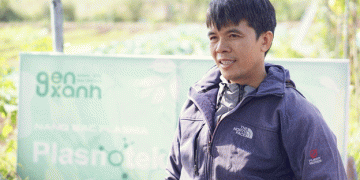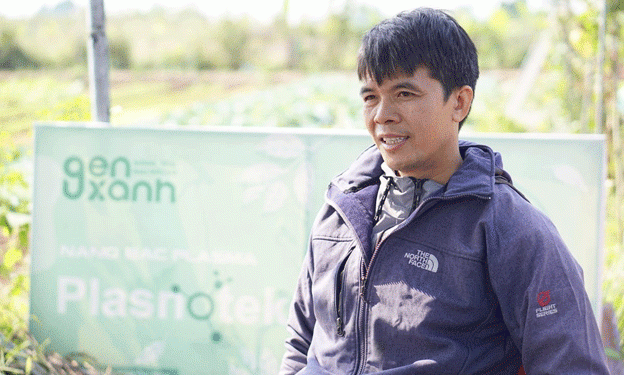In Hanoi’s peri-urban communities, farmers are embracing organic farming and multi-value agriculture as pathways to sustainability, economic resilience, and ecosystem recovery. From high-demand organic vegetables to agritourism-focused vineyards, these innovative models are reshaping how food is grown and experienced in modern Vietnam.
Greener Fields Ahead: How Hanoi’s Farmers Are Leading Vietnam’s Organic and Multi-Value Agriculture Revolution
As the global demand for clean, safe, and sustainably grown food continues to climb, farmers around Hanoi are stepping up with innovative approaches to meet the challenge. From certified organic vegetables to integrated agritourism, these models are positioning Vietnam’s capital not only as a consumer hub, but also as a leader in sustainable agricultural transformation.
Organic Farming in Urban Proximity: The Case of Gen Xanh Farm
In Hiep Thuan commune of Phuc Tho district, Gen Xanh Organic Farm is a prime example of success in organic farming. Founded by Dr. Nguyen Duc Chinh, an agricultural scientist formerly with the Vietnam Academy of Agricultural Sciences, the farm employs full organic practices—no synthetic fertilizers, no pesticides—and has rapidly built a loyal customer base.
Organic produce from Gen Xanh often sells at 2 to 4 times the price of conventional vegetables. For instance, while regular guava may fetch just a few thousand dong per kilo at local markets, Gen Xanh’s organically grown guava sells at 40,000 VND/kg, often selling out despite the premium price. The farm operates largely on a pre-order basis, with produce delivered directly to customers’ homes—eliminating market volatility and middlemen.
From a scientific standpoint, the switch to organic methods has rejuvenated the soil. Earthworm populations and microbial biodiversity have increased, key indicators of soil health and long-term productivity. This aligns with global research: a 2023 FAO report confirmed that organic farming improves soil organic matter by 15–25% on average over 5 years, leading to better water retention, erosion resistance, and carbon sequestration.
Ecosystem Restoration and Farmer Mindset Shift
Dr. Chinh emphasizes that beyond profitability, the core value of organic farming lies in health protection—both for farmers and consumers. By eliminating exposure to harmful chemicals, farmers improve their well-being, and consumers receive nutrient-dense, chemical-free food. Over time, even skeptical neighboring farmers have shifted their attitudes and now eagerly consume or replicate the organic model.
However, finding suitable land for organic farming remains a serious constraint. Even in rural and mountainous areas, pollution from conventional farming can compromise organic integrity. Gen Xanh’s success is partly due to its strategic location—access to clean water and low pesticide use in surrounding zones.
The Rise of Multi-Value Agriculture: From Grapes to Green Tourism
As land becomes increasingly scarce, Hanoi’s farmers are also embracing multi-value agricultural models that combine food production with tourism, education, and cultural experiences.
In Hoai Duc district, Nguyen Huu Hung has transformed his farm by growing “Hạ đen” (black summer) grapes while opening the vineyard for agritourism. Visitors not only enjoy tasting fruit straight from the vines but also participate in growing and harvesting activities. Though the initial investment was higher than traditional farming, the returns—both financial and social—have been substantial. Children from Hanoi frequently visit the site, engaging in outdoor learning and strengthening urban-rural bonds.
This strategy is gaining traction as urban consumers seek “green experiences” and reconnection with nature. According to Vietnam’s Ministry of Agriculture and Rural Development, integrated agri-tourism models can increase farm income by 30–60% while promoting local employment and cultural heritage.
Government Support and Technical Innovation
The Hanoi Agricultural Extension Center is actively supporting this transition by promoting:
- Organic and VietGAP-certified models
- Biological pest control and herbal plant protection products
- High-tech solutions for irrigation, lighting, and environment control
Farmers are increasingly adopting biostimulants and smart systems to optimize production while minimizing chemical inputs. These interventions not only lower costs but improve sustainability across the supply chain.
Hanoi’s farmers are proving that with the right knowledge, community support, and market demand, organic and multi-value agriculture can thrive—even in densely populated urban regions. From the scientific rigor of Gen Xanh’s soil restoration to the tourist-friendly vineyards in Hoai Duc, the city is becoming a living lab for sustainable food futures. For farmers, agronomists, and researchers worldwide, Hanoi offers replicable models that prioritize health, environment, and economic resilience in equal measure.































